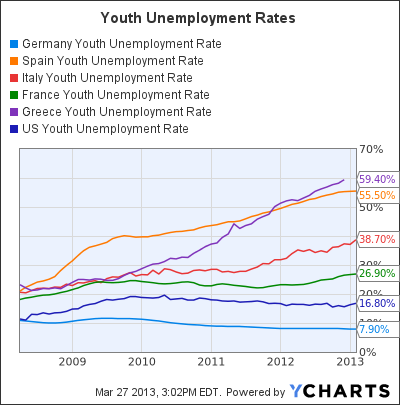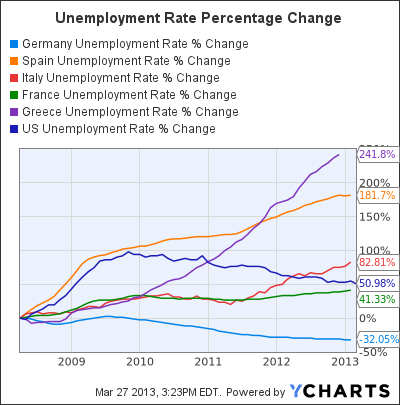Napolitano pledged on Saturday that he would stay in office until the end of his term on May 15 following reports that he planned to step down to break the deadlock created by last month's election, which left no party able to form a government.
Months of Pressure on Bersani and Silvio Berlusconi
The ECB clearly does not want to take a chance that Beppe Grillio's Five Star Movement will win the next election, so the pressure is on by the ECB for a different result.
Bloomberg reports Napolitano Names Advisers in Renewed Push for Italian Deal
Italian President Giorgio Napolitano renewed his push to forge a government from the country’s divided parliament by drafting advisers from two of the top three political forces.Coalition Won't Last
Members of the parliamentary coalitions headed by Pier Luigi Bersani and ex-Prime Minister Silvio Berlusconi were among the 10 men selected, according to an e-mail sent late yesterday by Napolitano’s office. Civil servants, a former politician, a retired judge and a central banker rounded out the two lists. Beppe Grillo’s Five Star Movement, the third-largest group, had no lawmakers included.
Grillo, an ex-comic who characterized his party’s mission as the French Revolution without the guillotine, criticized Napolitano’s appointment of advisers in a blog posting today.
Italy “doesn’t need ‘caretakers of democracy,’ but rather to make its parliament function better and quickly,” Grillo said. “The country doesn’t need mysterious negotiators or facilitators of the caliber of Violante, the grand master of backroom deals, to cite just one, to act as a group of wise men.”
Violante, a former speaker of the lower house of parliament, didn’t respond to a request via his website for comment.
If Napolitano does manage to scrape together a coalition, it will not last long. Berlusconi is angling for the right to name the next president to form a government. However, once that is done, he will no longer need the coalition and will be happy to have elections free from worry over prosecution and also with rule changes more favorable to his party.
Mike "Mish" Shedlock
http://globaleconomicanalysis.blogspot.com






















